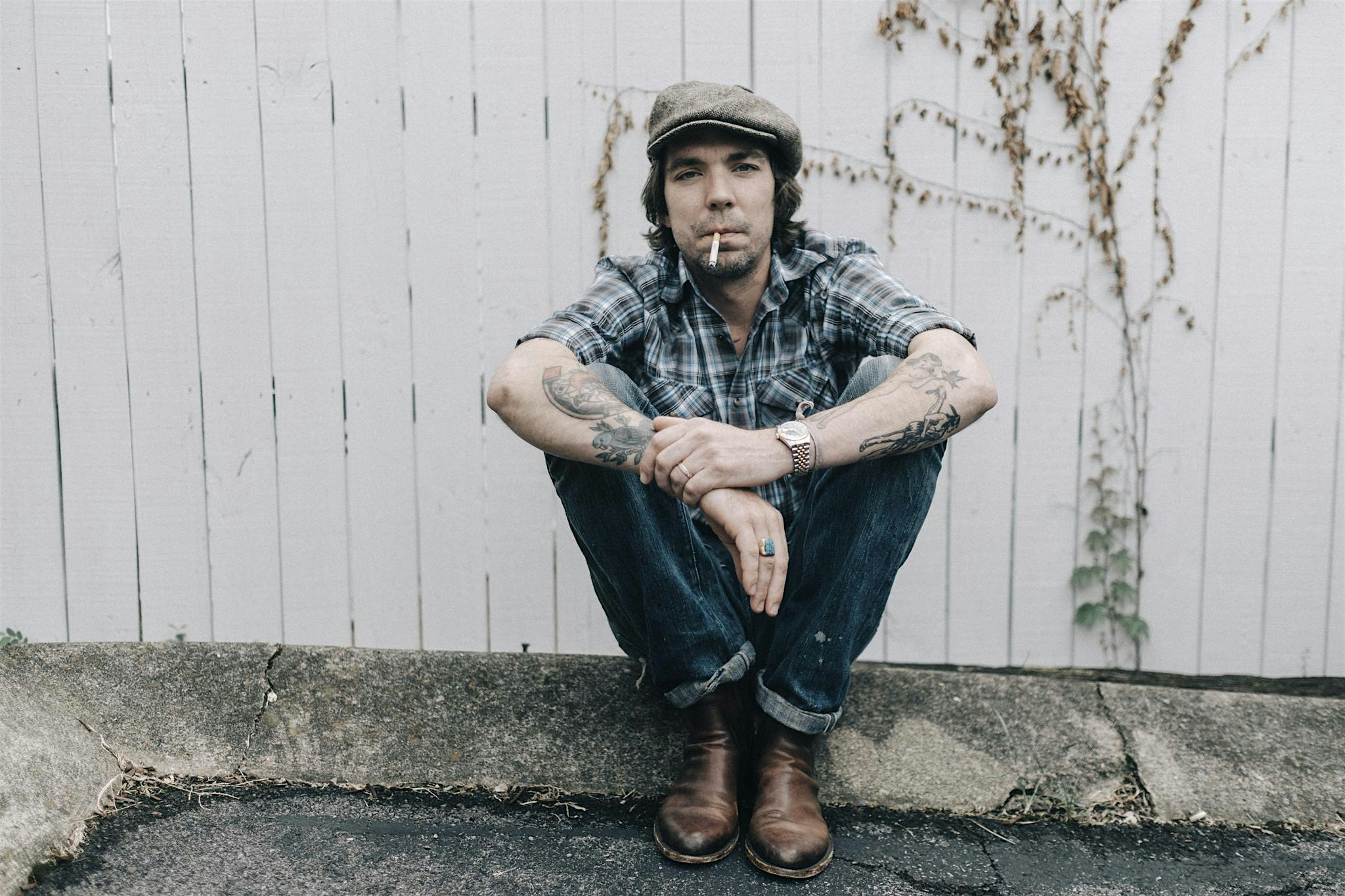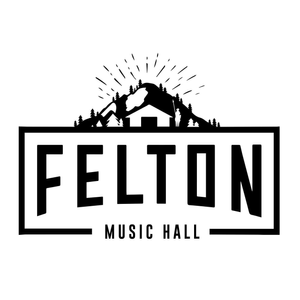Justin Townes Earle

***This is a standing room general admissions show. There will be a limited number of chairs located in the back of the concert hall. Seating will be first come first served. The restaurant will be open for dinner starting at 4pm.
Felton Music Hall Presents:
JUSTIN TOWNES EARLE
Justin Townes Earle has done a lot of living in his 37 years. For starters, there’s the quick-hit bullet points about his childhood that seem to get dredged up in every interview, article orreview about the singer-songwriter and guitarist: Born the son of Steve Earle, who was largely absent during Justin’s childhood; struggles from a young age with addiction and numerousstints in rehab; long stretches of itinerancy and general juvenile delinquency; a youth he oncesaid he was “lucky to have gotten out of alive.” That’s before we get to the years spent honing his craft in Nashville bars and on club stages allover the world; the various bands, record labels and industry types that have been drawn toward and, at times, pushed away by him; and, finally, the celebrated and rather formidable body ofwork he has amassed since releasing his critically-acclaimed 2007 debut EP, Yuma.
It’s a seemingly bottomless well of material for a singer-songwriter to mine out of just threedecades or so of life. And Earle at times has—most recently on his 2017 album, Kids in the Street , which the artist calls “one of the more personal records I’ve ever made.”But when it came to his newest effort, The Saint of Lost Causes , Earle, these days sober, married and father to a baby girl, chose to focus his gaze outward. “Maybe having a kid has made me look at the world around me more,” he says. As for how he feltafter doing that?“Frankly, I was horrified,” he says bluntly. Although, he adds, “I already sorta was, anyway.”Make no mistake: there’s nary a party, PBR or pickup truck to be found in any of the 12 tracks on The Saint of Lost Causes . Rather, Earle is focused on a different America—the disenfranchised and the downtrodden, the oppressed and the oppressors, the hopeful and the hopeless. There’s the drugstore-cowboy-turned-cop-killer praying for forgiveness (“Appalachian Nightmare”) and the common Michiganders persevering through economic and industrial devastation (“Flint City Shake It”); the stuck mother dreaming of a better life on the right side of the California tracks (“Over Alameda”) and the Cuban man in New York City weighed down by a world of regret (“Ahi Esta Mi Nina”); the “used up” soul desperate to get to New Orleans (“Ain’t Got No Money”) and the “sons of bitches” in West Virginia poisoning the land and sea (“Don’t Drink the Water”).These are individuals and communities in every corner of the country, struggling through theordinary—and sometimes extraordinary—circumstances of everyday life.“I was trying to look through the eyes of America,” Earle says. “Because I believe in the idea ofAmerica—that everybody's welcome here and has the right to be here.”Earle tells these American stories in detail and without judgement. But he also lays out his pointof view right from the start. The Saint of Lost Causes kicks off in stark fashion with the titletrack, on which JTE, over a desolate soundscape of acoustic guitar, deliberate snare hits andmoaning pedal steel, presents a harsh vision of the world in plainspoken, almost biblical terms:"Got your sheep / got your shepherds / got your wolves amongst men,” he intones, beforeasking, “Throughout time / between the wolf and the shepherd / who do you think has killedmore sheep?”
“That's kind of like the spooky leftist conspiracy theorist in me,” Earle says with a slight laugh,before turning serious. “But the fact is, if you look around, we live ina time where one of thenumber-one threats to an inner-city black youth is a police officer. It’s just bizarre. So I thinksometimes how we forget how animal we are. We look at ourselves as this sort ofhigher-functioning being, but we miss the mark quiteoften at being civilized and such.”He points to another track, the slide-guitar-and-harmonica assisted “Don’t Drink the Water”(“Folks gettin’ sick, talkin’ women and children / ask the man on the stand what he thinks killed‘em”), as a further example of man’s disregard for his fellow man. “Several years ago one of [ coal CEO and former Republican primary candidate for Senate ] Don Blankenship's companiesleaked a bunch of chemicals into the river outside of Charleston, West Virginia, and there’s stillareas where if people take a bath they’ll get lesions on their skin,” he explains of the song’ssubject matter. “We live in the richest per-capita country in the world, and we have people whocan't bathe in the fucking water. Much less drink it.”While that song and others like “Flint City Shake It”—where, over a boogie-woogie rhythm, Earle chronicles the decline of the city’s once vibrant auto manufacturing industry (“Then trouble come in ’86 / this son of a bitch named Roger Smith / cut our throat with the stroke of afountain pen”)—cite historical events, other tracks present fictionalized narratives that are noless harrowing or true-to-life.Take the haunting “Appalachian Nightmare,” on which Earle spins a first-person accountof howa landscape of little opportunity combined with a few bad decisions can quickly lead to apremature, and literal, dead end. “It's a fictional story, but it's a story we've heard a milliontimes growing up in the South,” he says. “I remember back inthe late Nineties we had what theycalled the ‘Oxycontin Wars,’ which was, like, hillbillies armed to the teeth robbing the shit out ofdrug stores. People went buck wild and it destroyed a lot of lives.”But Saint of Lost Causes is not all doom and gloom. There are also moments of calm, bothmusically and lyrically, where Earle pulls back to admire the beauty of the world around him. Onthe languid “Mornings in Memphis” (“one of my favorite songs on the record”), he watches thesun rise, takes a stroll down Beale Street to the banks of the Mississippi, and, finally, standsalone under a sky full of stars where all he can do is “try not to think / just listen to my heart.”He offers a similar, if more jocular ode to his surroundings on “Pacific Northwestern Blues,”where the Nashville-bred Earle, now relocated a few thousand miles west, laments only beingable to drive 20 miles an hour due to the region’s notoriously rainy conditions. “We’re moving soslow / I’m about to lose my mind,” he complains over a loping Western swing accompaniment.Says Earle with a laugh, “I've been living in the Pacific Northwest for a while, and I’ve realizedthat, you know, the weather really does suck up here!”Earle may call the Pacific Northwest his home these days, but when it came time to record TheSaint of Lost Causes he headed back to Music City. “I always say, ‘If you want whores andgambling, you go to Vegas. If you want to make records, you go to Nashville,’ ” he reasons. Earleco-produced The Saint of Lost Causes with his longtime engineer Adam Bednarik, and likewisebrought in musicians that that he’s known for years, among them guitarist Joe McMahan, pedalsteel player Paul Niehaus, drummer Jon Radford and Old Crow Medicine Show keyboardistCory Younts. “I'm realizing that as I'm getting older and grumpier and set in my ways, I justmuch more enjoy making a record on my own terms and with people I know well,” he says.To that end, Earle also worked at a studio he knew well, even if he had never actually recorded there before. Sound Emporium is a facility steeped in music history—it was opened by CowboyJack Clement in 1969 and has hosted country luminaries like Johnny Cash and Kenny Rogersover the years—and also Earle’s own childhood. “I grew up in that neighborhood, and as a kid Iused to ride my bike through the Sound Emporium parking lot,” he says. “It was always an active place in the neighborhood. So it was great to finally be able to record there.”As for where Earle’s sound, which on The Saint of Lost Causesspans everything from traditionalcountry, blues and folk to western swing, roots-rock and boogie-woogie, fits into the largercountry music picture beyond Nashville?“I see it the same way that Gram Parsons did,” he says. “There’s this idea of moving forward andplaying with newer sounds and different modes, but at the same time making sure you keep onefoot firmly planted in the past as you feel out the future. I think it’s really important to leave atrail, you know? Put down some breadcrumbs behind you.”He’s similarly resolute when it comes to his lyrics. Ask Earle whether he is at all concerned thatthe bold stance he takes on The Saint of Lost Causes might raise the country-musicestablishment’s hackles, and he can only laugh in response.“I've never been opposed to pissing off all the right people,” he says matter-of-factly. “But I see ittwo ways: If you don't like what I have to say politically or anything like that, just don't read myinterviews. But you're never going to go to my shows and hear political spiel from me. We'regoing to play songs and have a good time, because that's what the show is all about.“But you know,” he continues, “I'm a disciple of the Woody Guthrie school of thinking aboutmusic. I figure it’s always better to just go ahead and tell people the truth.”On The Saint of Lost Causes , Earle proves himself a songwriter and artist who is unflinching and unequivocal in his truth.
JONNY TWO BAGS
LOS ANGELES, Calif. – Salvation Town, the surprising and powerful solo debut by Jonny Two Bags, guitarist for the Southern California punk rock institution Social Distortion, defies expectations at every turn.
Produced by David Kalish, noted for his long association with Rickie Lee Jones, at his Redstar Studio in Los Angeles, the album, released by Isotone Records via Nashville’s Thirty Tigers on April 1, 2014, features 10 striking original songs written by Jonny Two Bags, a.k.a. Jonny Wickersham.
A diverse array of talent that spans the musical spectrum was enlisted for the recording. Revered singer-songwriter Jackson Browne shares vocals with Wickersham on “Then You Stand Alone,” while David Lindley, whose guitar work graced several of Browne’s classic ’70s albums, contributes to four tracks. Los Lobos’ multi-instrumentalist David Hidalgo and his sons David Jr. and Vincent join in on “Wayward Cain” and super-sideman Greg Leisz (Lucinda Williams, Eric Clapton, k.d. lang, Dave Alvin) also appears on guitar. The drum chair is filled by Pete Thomas, a mainstay of Elvis Costello’s bands The Attractions and The Imposters. Guest vocalist Gaby Moreno (recent Latin Grammy Award winner as Best New Artist) sings on “Avenues.” Other vocal guests include Julie Miller (wife and collaborator of Buddy Miller) and backup singers Terry Evans and Arnold McCuller, best known for their work with Ry Cooder and James Taylor. Wickersham’s colleagues in Social Distortion, keyboardist Danny McGough and bassist Brent Harding, join on a few tracks while Austin accordion luminary Joel Guzman and bassist/punk kingpin Zander Schloss (Weirdos, Circle Jerks, Thelonious Monster) round out the lineup.
The roots-based sound of Salvation Town carves out new stylistic terrain for Wickersham, who joined Social Distortion in 2000 after the untimely death of his friend Dennis Danell.
A product of Southern California, Jonny Two Bags had already put together a formidable punk rock résumé before joining Social Distortion. He co-founded the Orange County band Cadillac Tramps, cutting three albums with the group, and subsequently recorded and toured with L.A. punk unit Youth Brigade as well as pro skateboarder Duane Peters’ hard-edged U.S. Bombs.
Wickersham, who co-wrote several songs with Ness for Social Distortion’s albums Sex, Love and Rock ’n’ Roll (2004) and Hard Times and Nursery Rhymes (2011), was also penning songs of his own during that time. He says, “I’ve always been a sideman, so I usually write songs with the hope that the singer will like what I’ve written, take it, tweak it and maybe add some verses of his own.”
Producer Kalish had been urging Wickersham to make his own record for years. Finally, after tempting him with the opportunity to record with Pete Thomas, one of his favorite drummers, Wickersham could no longer resist and work on Salvation Town began. Over the next two years Kalish helped iron out some new tunes and put the finishing touches on pre-existing tunes like “Then You Stand Alone” and “Forlorn Walls” in between Wickersham’s stints recording and touring with Social Distortion.
The material reflects a multiplicity of musical styles and influences. Wickersham’s father, a professional musician who played folk, rock ’n’ roll, and country-rock, instilled in him a love of Southern California musicians like Jackson Browne, Warren Zevon and Linda Ronstadt. Wickersham’s own taste in contemporary performers runs the gamut from Lucinda Williams and Ryan Adams to Calexico.
Wickersham adds, “As a second- or third-generation punk guy from Orange County, the kings of the music world for me were The Blasters, Los Lobos and X. That school of musicians was as real as it could ever get. I connected with that really early on. That’s how I discovered music — basically, through those artists, the L.A. rockabilly scene, the L.A. roots-punk scene. They schooled me when I was still a little punk rocker on a skateboard."
Wickersham says he was set on making an honest-sounding album without resorting to an overly manicured studio sound: “I was used to making raggedy-sounding music and I wanted to stay true to that without making a punk rock record. It was important to me to record something that doesn’t sound over-produced and still has some spirit.”
The combination of Wickersham’s roots-music orientation and his dark, hyper-realistic compositions made for a stylistic shift that even the musician himself didn’t anticipate. “The finished product is not necessarily what I set out to do,” he says. ”It’s not a guitar record, and that’s something that I wouldn’t have expected.”
For many, the greatest revelation of Salvation Town will be Wickersham’s accomplished, fully-realized songwriting, which grew out of his tumultuous youth in the L.A. and Orange County music scenes. Writing and recording this album of streetwise and sometimes painfully frank songs about a life lived with “one foot in the gutter and one foot kicking in the door to Heaven” proved to be somewhat of a cathartic experience.
He notes, “As I was making this record, I realized that in some of these songs I’m singing about things that happened a lifetime ago for me and that was challenging. I just accepted the fact that I needed to purge myself on this record. I wrote about things that happened when I was growing up, feelings and experiences that I have had ... stuff that I have never been that open about. Even though my life is different now all of those experiences are still hanging there, just below the surface. I guess it never really goes away ... those that have lived it know.”



